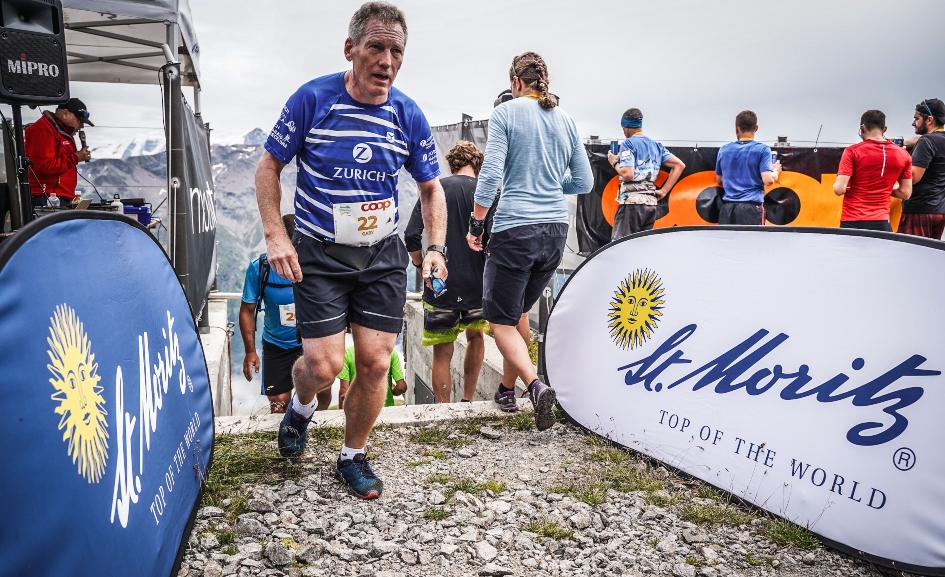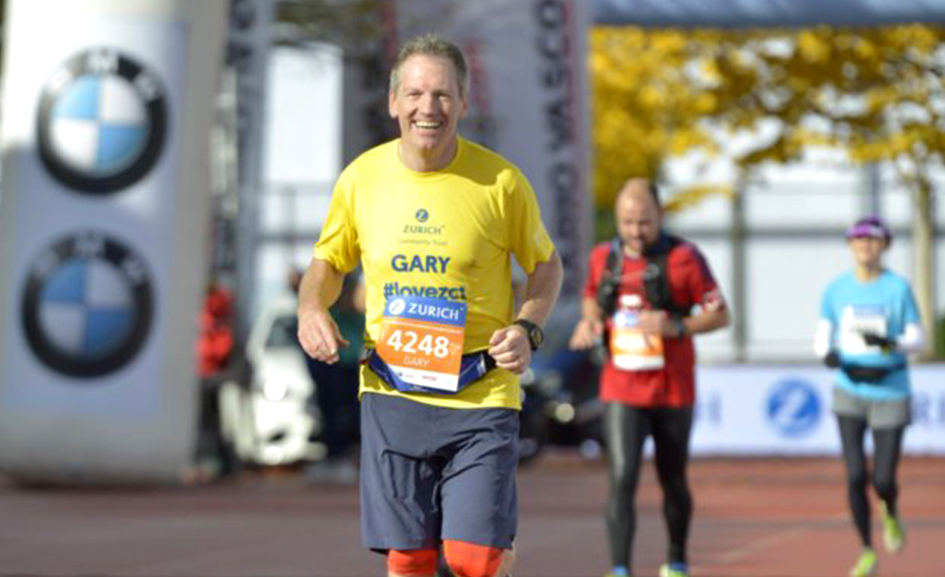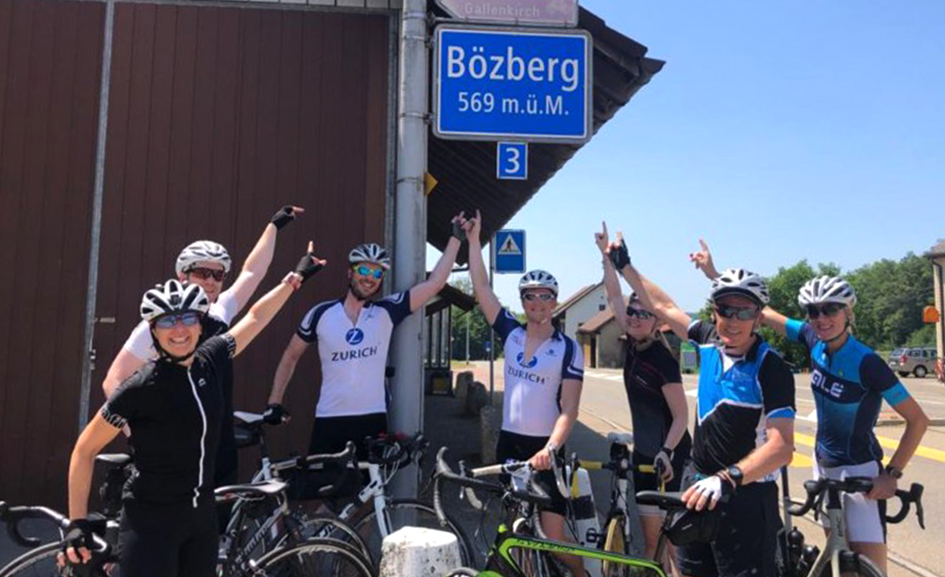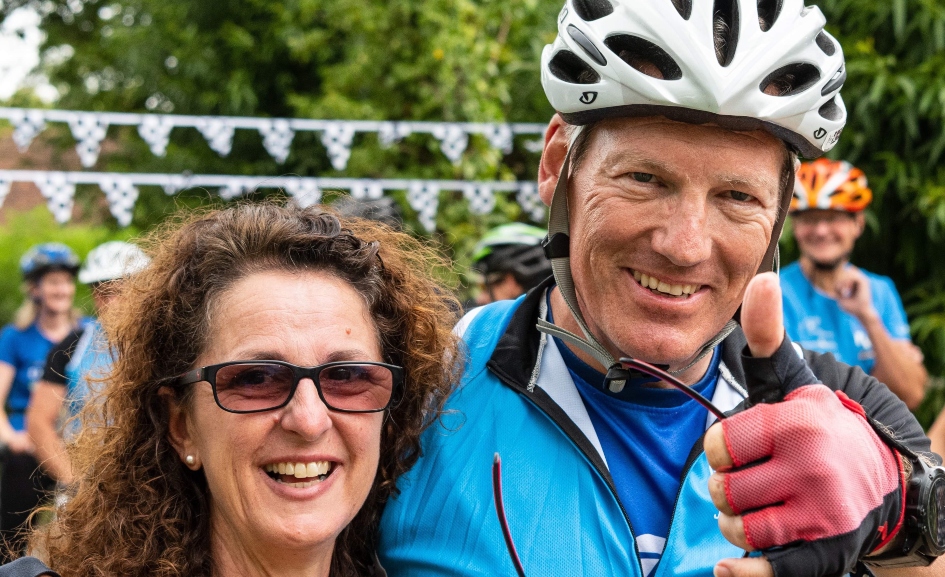“How can we trust that we’ll succeed if our own CEO is shaking?” Whilst reading one person’s feedback from a presentation he had just delivered in the UK, Gary Shaughnessy, ex-CEO of EMEA of insurance company Zurich, and current Chair of Parkinson’s UK, came to comprehend what Parkinson’s really meant for him.
At the time, Gary’s Parkinson’s diagnosis was unbeknownst to the world, save for a few close colleagues, friends and members of his family. Keeping it private was part of his determination to not let Parkinson’s define him, either in his personal life or in his career. Reading this comment, however, was a turning point.
“If someone takes less confidence in me doing my job because of my condition then that’s a problem,” said Gary sincerely. The following year, with this thought playing on his mind, he tentatively decided to make the diagnosis public. His biggest concern was that he did not want to be treated differently because of the disease, which many of us can empathise with, but he realised the need to be honest and open about it.
In the end, the reaction to the news could not have been better. Whilst people remained considerate and supportive of his situation, it wasn’t overboard, and he is still set the same expectations.

Gary’s illustrious career is one that many will dream of, with four years at the top of the Zurich ladder in the UK before being promoted to chief executive of all of Europe, Middle East and Africa in 2016. The frenetic lifestyle associated with his job, though, was beginning to take its toll. With his wife Janet in the UK, and himself based in Switzerland, the combination of work, family commitment and a progressing neurodegenerative condition crossed the line, even for such a high-functioning individual as Gary. In 2018, after over 25 years of working in finance, he decided to take an early retirement.
From insurance to charity
His work, however, did not end there, as he became the chair of two charities, Parkinson’s UK and Z Zurich Foundation, which he continues part-time to this day. Whilst being accustomed to the obligation he had to shareholders at Zurich, his roles as charity chairs have given him a deeper sense of responsibility.
“Being a trustee, you can have your view, but you also have a responsibility to the community,” said Gary. “Sometimes you have to understand that you can’t solve things for everyone.” The important thing for Gary, and for the charities as a whole, is about making a genuinely impactful difference. The lack of breakthroughs can often be despairing, especially for those personally affected by it, which is why it is so important to utilise and manage the limited resources as efficiently as possible. However, even as chair of Parkinson’s UK, Gary is frustrated at the lack of attention Parkinson’s has received globally.
“If there’s 10 million people in the world with Parkinson’s, and most people have a direct effect on 4-5 family members, it’s a condition that affects 40-50 million people. This number is frankly staggering, and while there have been several high-profile celebrity cases that have raised awareness, the symptoms and struggles of Parkinson’s is still not understood”.
In the developing world, the situation is even more serious, where many cases go undiagnosed and untreated. To Gary, this doesn’t feel right. “It can’t be about just finding solutions for the wealthy or those with access to the best facilities,” he said. “Mainstream medication was devised before we went to the moon but despite that there are several million people on the planet who don’t have access to medication or neurological support.”
This poignant comparison reflects a growing exasperation, especially amongst campaigners, of the shortfalls that prior missions to improve Parkinson’s around the world have had. Many are familiar with the ‘cycle of hope and despair’, where new treatments or changes to disease management have been notoriously promoted, only to fail when they reach the implementation stage. One thing that is then often told as consolation is ‘if we can’t have a cure for our generation then we can have a cure for the next one’. However, for Gary, this isn’t good enough.
“You know, I’d quite like a cure for my generation actually,” he said with determination.

What next?
Parkinson’s research has historically been underfunded with respect to the number of people it affects and it does beg the question as to where we would be now if more resources had been allocated to tackling the disease. This question certainly acts as a motivation point for the alliance of advocates known as PD Avengers, a group of activists calling for an end to the disease. Gary is a Founding Member of them and hence is heavily involved in their cause.
What makes PD Avengers stand out is their unrelenting zest. As Gary said, the Parkinson’s community hasn’t traditionally been a “particularly loud group of people”, and so PD Avengers is about changing that, not just for the next generation but also for their generation. With action comes awareness, and with awareness comes change.
“It would be amazing what just one big step forward could do for Parkinson’s”, suggested Gary hopefully. With PD Avengers rightly redefining the tone of the conservation, whilst dedicating themselves to take action where necessary, it is hoped that change will not be too far over the horizon.
Understanding Gary
Gary’s history as an ex-regional CEO within a multinational conglomerate certainly makes for a unique perspective, but in many ways his relationship with Parkinson’s has followed an altogether familiar trajectory. His knowledge of the disease was initially limited, and like many in his situation he didn’t at first comprehend the implications. He looked to the internet for help, which, upon reflection, he says was “the worst thing to do”. As many of you will be aware, the internet is often a polariser, in the sense that the disease is presented in its most extreme form, and the answers it provides give false hope, usually in return for lucrative bills.
It wasn’t until someone suggested to ring the local Parkinson’s nurse that he began to understand it more. He says he wasn’t given “the answer” but rather it allowed him to pin Parkinson’s into a box, instead of having no idea about how fast it will progress and what that progression actually means.
As time moved forward, he learnt more and more about the disease and how to manage it himself. For example, sleep disturbance is one of the biggest symptoms of Parkinson’s that isn’t talked about enough, where repetitively waking up in the night can be the norm for many people. Many will turn to their phone, but as Gary has learnt, once you start using your phone, your brain becomes intellectually stimulated and then any chance of falling asleep again flies out the window. So, his tip? Never leave the phone by the bedside. While it may sound trivial, little things like this can go a long way, and when it comes to Parkinson’s, even improving quality of life by 1% can make a tremendous difference.
On the topic of exercise and its benefits
One of the most important aspects of disease management for people with Parkinson’s is exercise. Doing 2.5 hours of exercise a week has been shown to slow the longitudinal progression of symptoms and also improve day-to-day quality of life by helping with sleep, fatigue, mood and mental health. As a keen footballer, runner and cyclist, exercise has fortunately always played a large part in Gary’s life.
Since being diagnosed, however, he has become somewhat of a fiend. In 2018, he ran four marathons. In 2019, he cycled 1340km from Zurich to Hampshire, which was 140km longer than it should have been due to a few mishaps with directions (we’re not all perfect Gary!). One month later and he was completing the Jungfrau marathon, which is 42km along and 1.8km up. His determination is breathtaking, but for Gary it’s just his way of “sticking one in the eye of Parkinson’s”.

“When I’m exercising I feel like I don’t have Parkinson’s”, he said triumphantly. When he was in full-time work, there would be times when his tremor would start in a meeting, and knowing that it was just him with it, the pressure would inevitably build, which in turn would make the tremor worse. “My self-confidence has been knocked because of it, definitely”, he said openly.
When he exercises, however, there isn’t that pressure to succeed. He can simply focus on crossing the finishing line, supported by his friends and family. “It doesn’t matter if it took 4 or 5 or 6 hours”, he said. “Every event I complete it’s another point that shows myself I’m not defined by this condition.”
To Gary, he sees his relationship with the disease as a battle, and it is a battle he is not willing to lose. With ever-increasing motivation, Gary is always looking to the future to see how next he can push himself. The next hurdle is coming up very shortly, where he and a close friend will attempt to set the world best for the longest three-legged distance travelled in under 24 hours. We thoroughly wish him the best of luck with it.

The struggle
The road to this point, however, has not been easy. Gary recalls a time, earlier in his diagnosis, when he was on a business trip in Lisbon.
“I was in a particularly low point and so I decided to go for a run in the morning, at about 530am”, he said. “But as I was running, I realised I was getting slower and slower, and there was a person walking their dog in front of me, and I realised I was struggling to even get past them.” Feeling dejected, he decided to phone his wife Janet for consolation. “So I essentially asked her if I was going to have to give up all of this sport.”
Being an avid sportsman, the notion was devastating for him. “In the end, she said to me ‘look, you’ve got something that doesn’t happen overnight, it’s a long-term degenerative condition – focus on the things you can do’.”
Since then, Gary has pushed himself to focus on the present, and not to dwell on the future. “It just goes to show how much is up here”, he said, pointing to his head.
Everyone with Parkinson’s will have a similar story, and it’s at times like these that people realise how important their family and friends are to them. There is no doubt that dealing with Parkinson’s is tough beyond belief, but with loved ones to pick you up from the lows and share with you the highs, it can make riding the wave a little easier. Just before we leave, we ask Gary if he has any advice for us going forward. “You will have setbacks”, he said. “But it’s how you deal with those setbacks that makes you grow, much more so than how you deal with things when they’re going right. Because something will go wrong, and it’s the thing that does that will lead to your biggest success.”

Thank you, Gary, for your advice and for talking with us. :)